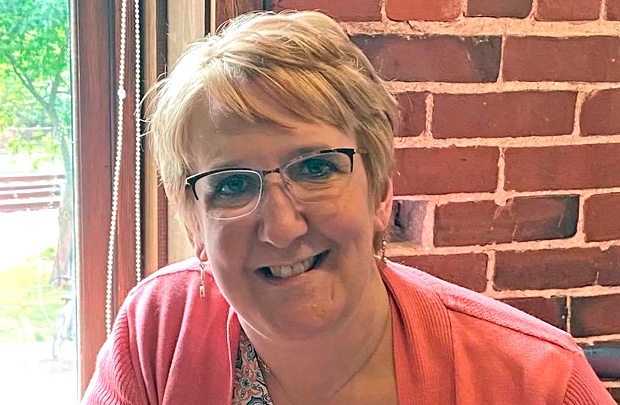
Jackie Smigel has been a caseworker for more than 30 years and is the founder of Open Arms Adoptions, an Ohio adoption agency that specializes in keeping siblings together.
A mother Jackie worked with suggested that we feature her as an Outstanding Caseworker. The mother wrote:
“Jackie has helped my husband and I navigate the world of adoption…We adopted a sibling set of three from foster care and couldn’t have done it without her help and guidance. Jackie is compassionate, trustworthy, and straightforward. We love her dearly… She has become a part of our family.”
You are the founder and executive director of an adoption agency. Is it unusual for you to be a caseworker too?
I have a relationship with most of the families who work with our agency. But usually, I am backing up the worker. In this case, I met the couple when they first inquired, and then their social worker resigned at a crucial point. I didn’t think it was fair to them or the kids to introduce them to a new worker when they already had a relationship with me.
Your agency focuses on keeping siblings together. Why is this important?
Because all that they have left is each other, and far too often, they lose each other in the system. I think this happens for a few reasons. Often, it’s due to a lack of resources in terms of foster parents, and the quickest way to get kids into homes is to place them with different families. Then that quick fix becomes permanent as time moves on. Our agency’s work includes both keeping siblings together from the beginning and reuniting them if they’ve been separated.
We take it a step further and try to keep children with “fictive kin”—cousins and other children they grew up with or are close to—when possible. Because it’s not up to us to decide who children think of as their sisters and brothers.
You’ve been doing this work for more than 30 years! What keeps you doing it?
It’s rewarding—on most days! But I make it through every day and wake up and do it again because when we are able to get brothers and sisters back together to finish growing up, that success keeps me going for a long time.
I tried to run away from this job more than once. But I’m a firm believer that things happen for a reason. And this is exactly what I’m supposed to be doing.
What makes a great parent?
First and foremost, people who are stubborn—too stubborn to give up! They face every challenge head-on. When their kids are mad and testing them, they prove to them that they are in it for the long haul.
Great parents are not afraid to reach out for help, and they are brutally honest with their workers. They reach out and ask us things like: “Remind me why I did this,” and are frank in telling us when they feel like throwing in the towel.
And very importantly, great parents accept that there is more than one right way to do something. Ideally, their worker empowers them to try different approaches until they find the one that works.
What do you say to a parent who tells you that they are at their wit’s end?
First, I ask them what is going on. Mostly what I hear parents say is that they feel like they are doing something wrong. In that moment, they think they are failures at helping their kids, which is very seldom the case. But that one struggle can overshadow the 12 things the parents are doing really well! So, first I remind them of all of the things they are doing right, without diminishing their frustration. Then we brainstorm how to address the challenge at hand.
Final thoughts?
People think that adoption is the cushy job in child welfare—that it’s all happy and fun. It’s not. It’s tough work. Because all adoption starts with loss. We’re walking through people’s pain and through the unspeakable things that have happened to kids who are fighting for survival. It’s not easy. But when we get there, when we’re part of bringing a family together, there’s no greater feeling in the world.